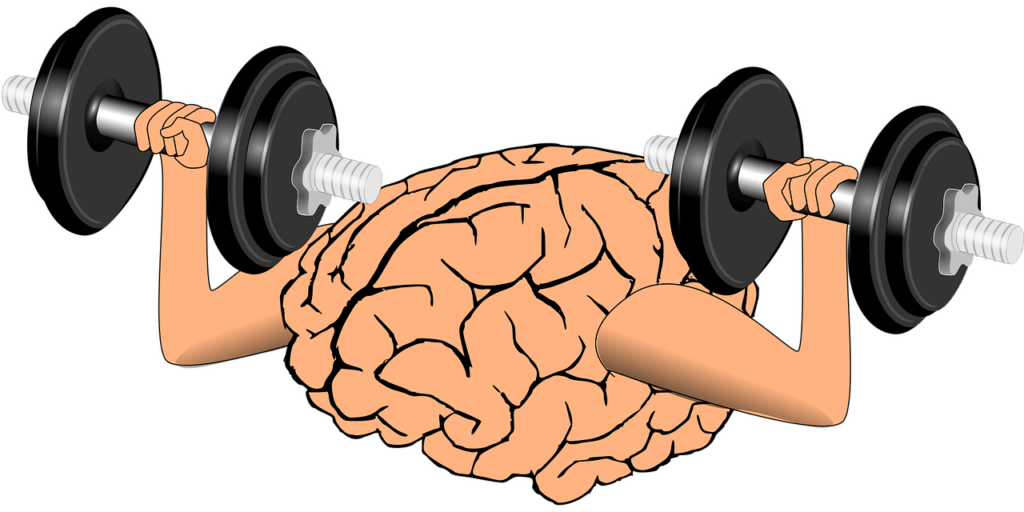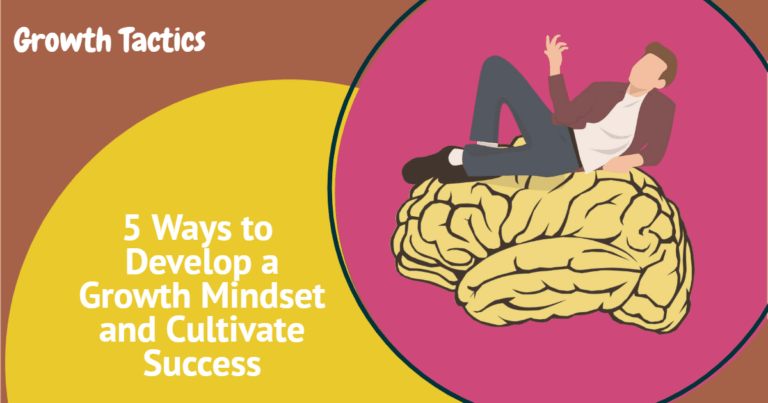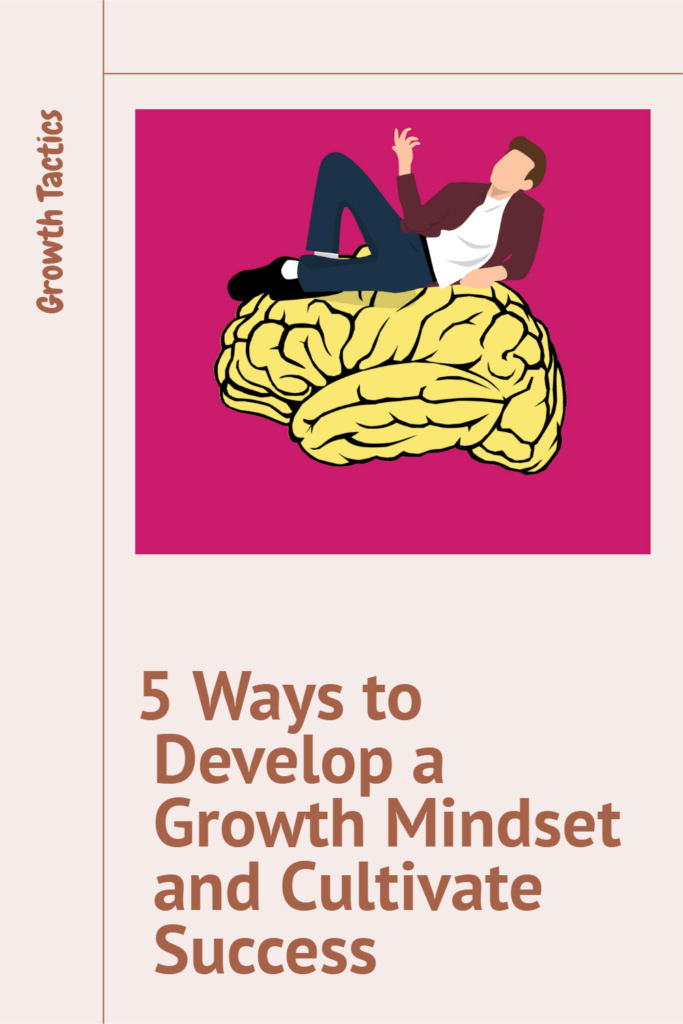A growth mindset is the belief that your basic qualities and abilities can be cultivated through your efforts. This concept was first introduced by psychologist Carol Dweck through decades of research at Stanford University.
Dweck’s research revealed two core mindsets that people tend to adopt – fixed mindsets and growth mindsets. Those with a fixed mindset believe their intelligence and talents are innate gifts that cannot be changed. They are more likely to avoid challenges and give up easily when facing setbacks.
In contrast, those with a growth mindset believe they can develop their abilities through hard work, good strategies, and mentorship from others. They embrace challenges, learn from criticism, and persist through obstacles. This mindset enables people to reach their full potential.
Adopting a growth mindset opens up many benefits. You become passionate about learning and self-improvement. Taking on challenges that help you grow. You don’t let setbacks define you, but rather use them as opportunities for growth. Overall, a growth mindset empowers you to continuously push yourself beyond your comfort zone.
Jump To Section
What Are 5 Ways to Develop a Growth Mindset?

Cultivate a Passion for Learning
Individuals with a growth mindset are passionate about learning and self-improvement. They don’t just want to look smart or talented, they want to actively develop their skills and abilities. This means seeking out challenges and opportunities to expand their knowledge.
For someone with a growth mindset, obstacles are not seen as threats, but as chances to learn something new. Failures and mistakes are not seen as signs of permanent inadequacy, but as important feedback to fuel greater mastery. It’s not about immediate validation, but the joy of gradual progress through consistent hard work.
Rather than judging themselves on innate talent alone, growth-minded people find motivation in the process of learning itself. They focus on mastering techniques, finding solutions, and self-improvement. Outcomes are secondary to the satisfaction of giving full effort and getting better over time. Small incremental gains add up to big results.
By cultivating a passion for learning, individuals adopt a mindset oriented toward development and expansion rather than static evaluation. Challenges become welcomed rather than feared. Failures become guideposts rather than endings. Consistent, dedicated effort takes priority over raw talent. This passion fuels personal growth and achievement.
Embrace Challenges
Stepping outside your comfort zone and embracing challenges is essential for developing a growth mindset. Many people with a fixed mindset actively avoid challenges because they fear failure. They believe if they can’t do something well immediately, it means they don’t have natural talent.
Individuals with a growth mindset take the opposite approach. They don’t view challenges as threats but as opportunities to learn. By seeking out challenges, you give yourself the chance to expand your abilities. With each new difficulty faced, you build character and skills.
It’s important not to let fear of failure hold you back. Failure is a natural part of growth. When you try something challenging and fall short, reflect on the experience as a learning process rather than a disappointing outcome. Think about what you would do differently next time. Failure only becomes constructive when you let it direct your future efforts.
Seeking bigger challenges provides more chances to learn. Look for ways to continuously stretch yourself. Take on assignments that require new skills. When you get outside your comfort zone, you open yourself up to new ideas and experiences. Approaching challenges with a growth mindset allows you to turn obstacles into opportunities for self-improvement.
Persist Through Setbacks

Setbacks are an inevitable part of learning and growth. When you encounter obstacles, it’s important not to get discouraged. Individuals with a fixed mindset are more likely to give up when facing challenges, while those with a growth mindset persist and view setbacks as opportunities to improve.
When you experience a setback, don’t see it as a failure. Reframe it as a chance to learn. Ask yourself – what can I learn from this experience? How can I improve next time? Maintaining a growth mindset means focusing on progress rather than perfection. Setbacks don’t define you; they help shape your path to success.
Stay motivated by focusing on how far you’ve come, not how far you have to go. Celebrate small wins and milestones. Track your progress so you can clearly see your improvement over time. With consistent effort and a willingness to learn from mistakes, you’ll continue to get better. Setbacks are temporary; growth is lifelong. Persist through the challenges and your abilities will blossom.
Give and Receive Constructive Feedback
A growth mindset thrives on constructive criticism. Feedback allows us to improve and grow, so don’t take it personally. When you receive constructive feedback, remember that it’s about your work, not you as a person. Try to learn something from it.
When giving feedback, focus on being constructive. Point out areas that need improvement, but also highlight strengths. Frame feedback as suggestions for growth rather than just criticism. Always give feedback respectfully and sensitively.
Asking for feedback shows that you want to improve. It allows you to gain an outside perspective on your performance and skills. Don’t just seek positive feedback – ask for constructive criticism too. This shows that you are open to change and committed to growth.
Giving feedback is a skill that takes practice. Offer it regularly, not just during formal reviews. Be specific and focus on actions under the person’s control. Check that they understand your feedback and allow time for discussion. With an attitude focused on growth, feedback becomes an opportunity rather than a threat.
Celebrate Growth and Effort
Recognizing progress and celebrating growth, no matter how small is a key part of adopting a growth mindset. When you achieve a goal or milestone, take time to appreciate your effort and hard work. Share your success with others and allow them to congratulate you.
It’s also important to praise the process, not just the end result. Applaud small wins along the way and focus your feedback on effort over innate talent. Phrases like “I can see you worked really hard on this” reinforce a growth mindset much more than “You’re so smart.”
Understand that growth and improvement take time and consistency. True mastery requires patience and persistence. Don’t get discouraged by setbacks or plateaus. Trust the process and keep working diligently. Progress will come with continuous learning and practice.
Remind yourself that your abilities are not fixed, but cultivated through hard work. Maintain motivation by tracking your development and celebrating incremental achievements. With a growth mindset, you’ll recognize that meaningful growth unfolds gradually through diligence.
Commit to Continuous Improvement

Individuals with a growth mindset understand that skills and abilities can always be improved with effort. They don’t see their talents as fixed, but rather malleable through hard work. By committing to continuous improvement, you can constantly expand your skillset and achieve greater success.
Here are some ways to commit to continuous improvement:
- Set specific development goals. Identify abilities you want to improve and set measurable goals to hold yourself accountable. For example, taking an online course, reading a book, or practicing a new skill daily.
- Seek out growth opportunities. Look for ways to challenge yourself and gain new skills. Take on projects that stretch your abilities or volunteer for assignments outside your comfort zone. Be proactive in finding chances to learn.
- Reflect on progress. Periodically examine how you’ve grown. What new skills have you developed? How has your performance improved? Reflecting helps you gain perspective and motivates further improvement.
- Find role models. Look to those excelling in areas you want to improve. Their success can inspire your own. Reach out and ask how they succeeded. Their insights can help guide your growth.
- Maintain self-motivation. Growth takes sustained effort over time. Stay driven by focusing on your development goals, visualizing future success, and reminding yourself of the progress you’ve made.
Committing to continuously improve yourself takes dedication but pays dividends throughout your career. Viewing abilities as developable, not fixed, allows for limitless growth and achievement. By making self-improvement a lifelong journey, you can constantly reach new heights.
The Path to Progress and Success
Adopting a growth mindset is not a quick fix or an overnight change. It’s a lifelong commitment to personal growth and development. But the long-term benefits make it well worth the effort.
Individuals with a growth mindset understand that cultivating new skills and achieving mastery takes time. There will be setbacks and stumbles along the way. However, each challenge presents an opportunity to learn. Over the years, the small steps of progress compound, building knowledge, competence, and self-confidence.
While a fixed mindset seeks immediate validation, a growth mindset finds reward in the journey itself. The lifelong learner understands that the path to success is not a straight line. It winds and bends, revealing new lessons and insights. With each step, the growth-minded person expands their potential.
In the end, adopting a growth mindset is about realizing human potential. It’s about refusing to remain stagnant and pushing beyond artificial limits. While the destination may be uncertain, the path of continuous growth and learning will lead to progress and fulfillment. The cultivation of knowledge and skills is a lifelong endeavor, but it is through this active development that we are able to reach new heights of achievement and contribution.


